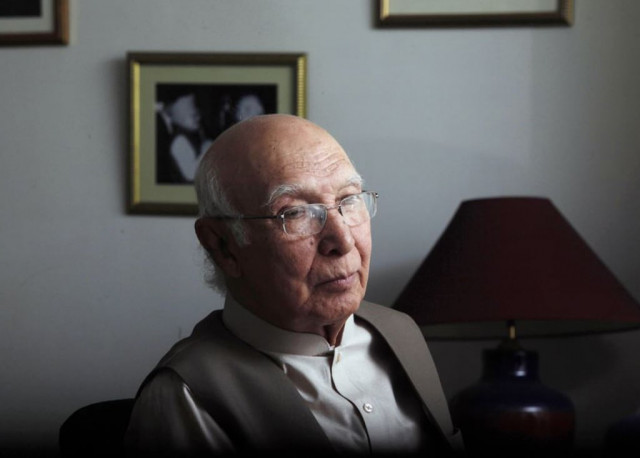Afghan endgame: ‘Pakistan working to ensure peace with neighbours’
Foreign Secretary insists economic development is the next step

Pakistan is seeking to strike peace with its neighbours to attain economic development and prosperity, which is the only way forward, said Foreign Secretary Aizaz Ahmad Chaudhry.
“Pakistan is committed to improving economic relations with all its neighbours — India and China being a priority,” he stated at the two-day international conference on “The Global Strategic Environment in the Post-2014 Era and Pakistan, organised by the Quaid-e-Azam University School of Politics and International Relations.
Chaudhry insisted that India has always initiated tension, including the recent skirmishes on the working boundary. “Pakistan is willing to resume dialogue with India. It is now up to India whether it wants to retort to dialogue or continue broader confrontation,” he added.
He reiterated that Pakistan supports a peaceful and stable Afghanistan. “However, Afghanistan would also have to take concrete measures to put an end to terrorism and stop infiltration into Pakistan”.

Basing on their findings, educationists, strategists and diplomats highlighted the challenges Pakistan might have to face post-2014, after the US pulls out from Afghanistan.
They recommended that the challenges should be turned into opportunities such as establishing order, making decision-making autonomous, analytical appreciation of global and regional order and formulation of viable strategy for safeguarding national objectives.
South Asian Strategic Studies Institute Director General Maria Sultan said that economics is the new reality of South Asia and for that stability and security of supply lines is vital.
Adding to this, Professor Tahir Amin suggested that it was high time that Pakistan reworked its relationship with Russia since it would be essential for Pakistan’s post-2014 interests.
Institute for Foreign Policy Studies Assistant Director Wang Weihua said China has played an instrumental role in helping Pakistan resolve its energy crisis. “Pakistan is a major energy corridor that can link China to the West and Central states,” he said adding that China and Pakistan are strategic allies and will continue to remain so in the future.
Institute of Peace and Conflict Studies Director Suba Chandran said that Afghanistan and the Middle Eastern crisis are shaping India’s interest in regional politics. He predicted that post-2014, India might have an edge over Pakistan as all major regional and western powers are working on building relations with the world’s largest democracy.
Chandran added that India is cautiously observing the civil-military relations in Pakistan and trying to figure out to which extent Nawaz-led government can be helpful for them.
Carrying the debate forward, Quaid-e-Azam University PSIR Director Zafar Nawaz Jaspal said the recent US-led global coalition against IS would be a bad-omen for Pakistan because of the presence of terrorists organisations on its soil.
Zafar Iqbal Cheema said that out of all the threats, internal challenges based on economic, sociopolitical and security grounds are the most alarming and upsetting.
Published in The Express Tribune, October 19th, 2014.



















COMMENTS
Comments are moderated and generally will be posted if they are on-topic and not abusive.
For more information, please see our Comments FAQ